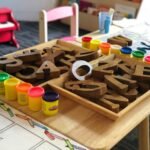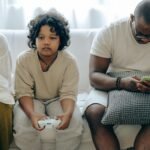Parenting means raising a child with guidance and autonomy. Where the parents raise their child with independence, confidence, safety, and well-being. It does not mean controlling your child. Sometimes parents impose strict rules and limitations on their children to protect them from harm and influence their decisions on them. Understanding between parenting and controlling is very important for healthy development and nurturing independence in children.
At the core, parenting means giving love, support, and proper guidance to children’s lives. Teaching them life skills, instilling values, and nurturing their emotional intelligence is also part of parenting. Effective parenting involves setting boundaries and allowing children the freedom to explore their lives and learn from their experiences.
On the other hand, controlling behavior in parenting sets limitations in children’s lives. In this method, the choice of their friends, academic activities, career paths, hobbies everything has been controlled by their parents. Controlling parents make their children’s lives out of fear or insecurity. This approach hampers children’s mental health and their ability to develop essential life skills. Such as problem-solving, decision-making, and resilience.
The key difference between parenting and controlling is the approaching style with the child. The parenting approach desires to nurture and empower children. Fostering their independence and self-confidence. In contrast, the controlling approach desires fear, anxiety, and dominance. It hampers children’s mental health.
Moreover, parenting focuses on collaboration and communication, where parents and children work together to find solutions and make decisions. Controlling behavior involves authoritarianism and coercion, where parents impose their will without considering their children’s thoughts or feelings.
In conclusion, Parenting and controlling are two different approaches to raising children. It focuses on helping kids grow and feel confident, but controlling behavior can make them doubt themselves and feel bad. So, don’t try to control your child. Keep trust in them. Give them the freedom to explore and make mistakes. They will learn from their mistakes. And this learning will be the best learning of their life because they are learning from their own life experience.
Check your page for learn more.
Click here to check psychology today’s post.







Leave a Reply